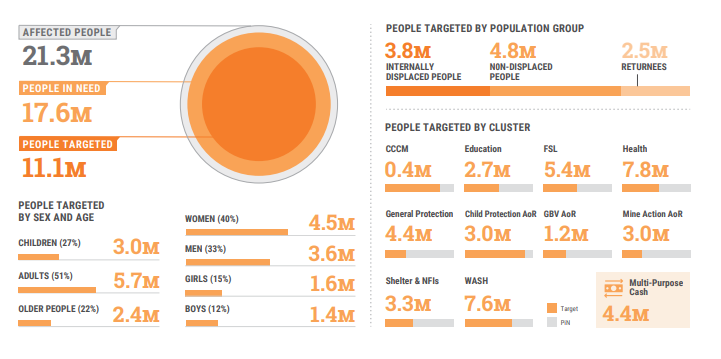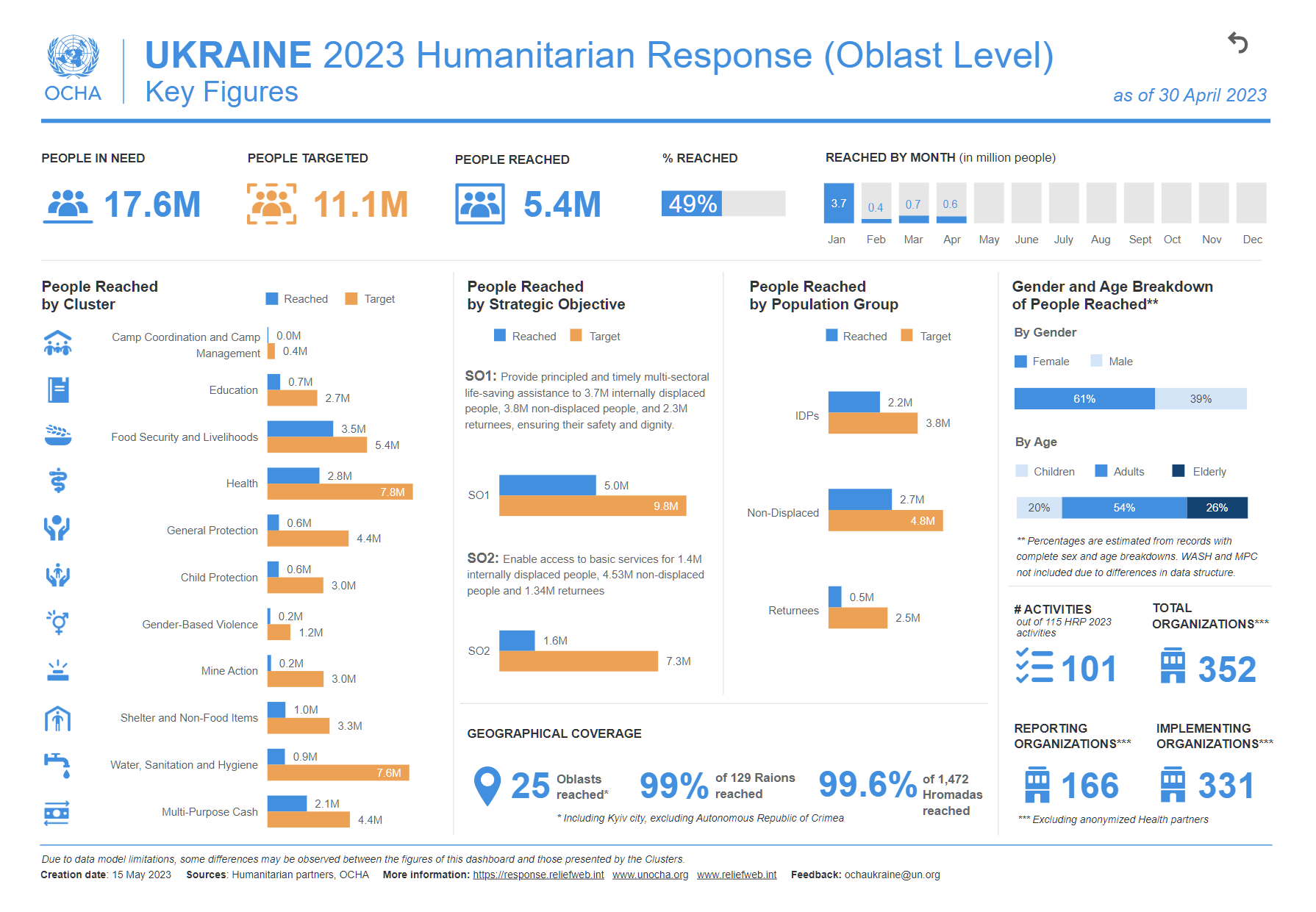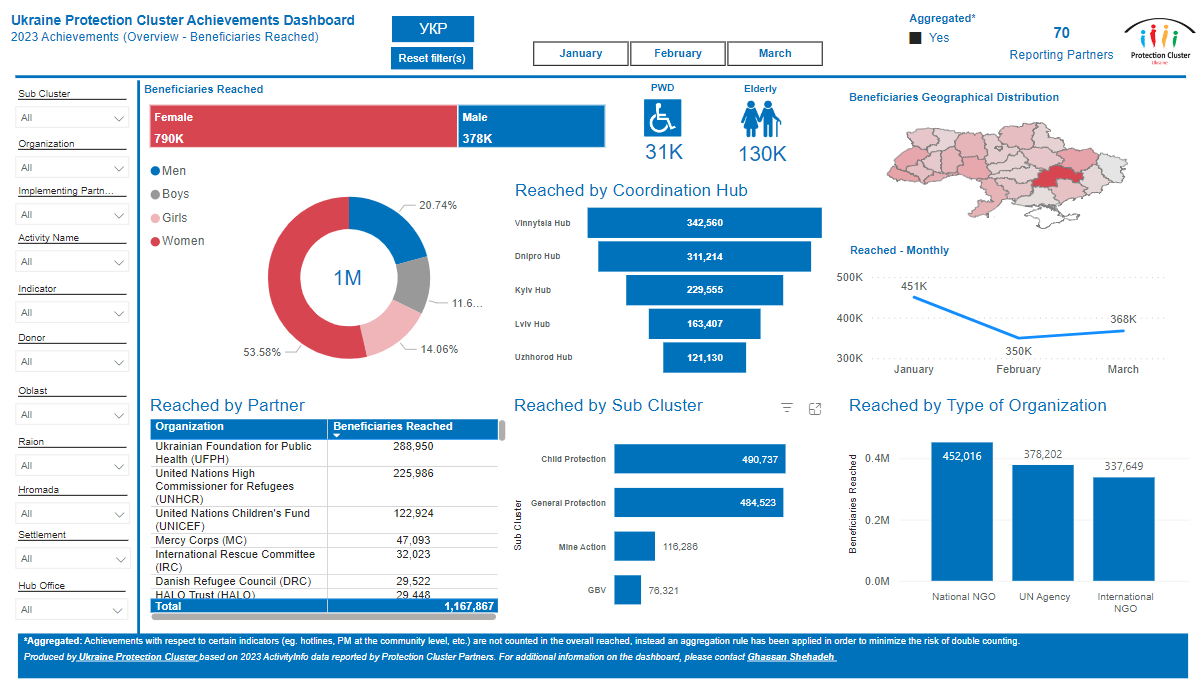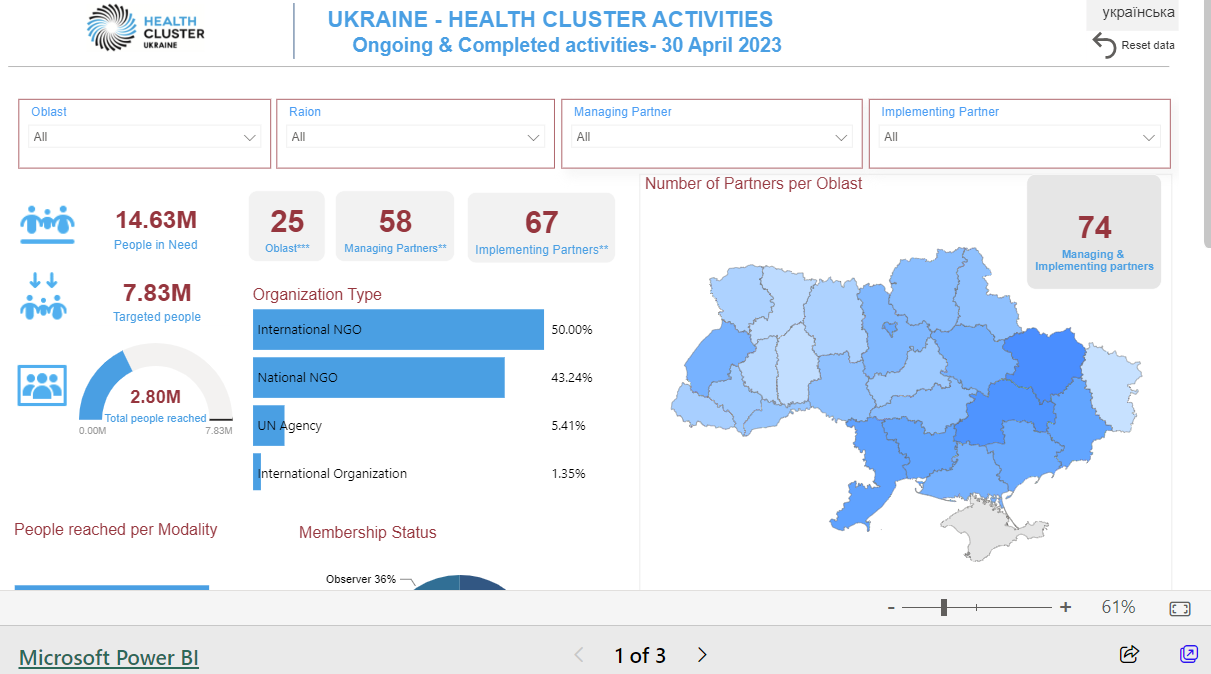Supporting the Response in Ukraine and the region: ActivityInfo is now available in Slovak, Romanian, Ukrainian, Polish and Hungarian
Since 2008, ActivityInfo has been serving humanitarian operations dealing with emergency responses around the world. Clusters and Sectors, Information Management Working Groups and response-leading organizations have used the platform to quickly deploy an information system to capture and monitor the work of partner organizations, identify gaps and track progress of interventions that support refugees, internally displaced people and hosting communities.
In the Ukraine situation, ActivityInfo is supporting the information management needs of key UN and NGO actors both inside and outside the country. To that end, we have updated the platform and now it can be used in more languages used in the region such as Ukrainian, Romanian, Hungarian, Polish and Slovak.
We would like to thank UNHCR, UNOCHA and UNICEF for their support in adding the new languages to the platform. We would also like to thank Mr. Ramon Shinkfield, Senior Information Management Officer in UNOCHA for providing information in relation to the humanitarian response in Ukraine and the use of ActivityInfo.
Inside the country

The humanitarian response in Ukraine plans to reach 11.1 million people with life-saving assistance in 2023 (the planning document can be accessed here. Nearly 700 organizations will be supporting the implementation of over 100 humanitarian-related activities across 10 different sectors. The dynamic scope of the response requires a monitoring and reporting system that is scalable and adaptable to the needs of the operation. Therefore, the Inter-Cluster Coordination Group with the support of OCHA has adopted ActivityInfo to create the Response Planning and Monitoring Platform (RPMP) for the Ukraine humanitarian operation. ActivityInfo provides a reporting instrument that is accessible to all partners, enables bespoke data collection for each sector, and facilitates controlled multi-sector data access and sharing.
Each Cluster is responsible for the design and implementation of their own form, which are integrated under the guidance and support of OCHA. To establish a strong foundation for the platform, common technical standards were developed for the design and setup of the database and forms, along with standard operating procedures to ensure consistent practice and approach by administrators and users. Guidelines were also prepared to ensure that there was agreement and clarity on data sensitivity and requirements for information exchange.
The RPMP is made up of two interconnected modules. The first module is the Activity Plan Module which is designed to capture operational details about the related projects and planned activities, including details relating to funding and accountability. The second module is the Response Monitoring Module that captures details about the progress and achievements of activities, which supports the reporting framework that includes over 150 indicators with additional disaggregation of selected indicators by age, gender and disability.
OCHA has opted to use Microsoft Power BI to analyze and share the response information being collected through the Clusters. This solution employs Microsoft Datamart to extract and transform the data from ActivityInfo and blend it with other reference datasets, including planning targets and activity parameters. The multi-page Power BI dashboards present the operational “5W” - Who has provided the assistance, What activities, Where they have been delivered and When, and to Whom the assistance has been provided. The sensitivity of the data restricts the level of detail that can be shared publicly. Therefore, multiple dashboards have been set up with different user privileges for different audiences. The public facing dashboard can be accessed here. This dashboard presents the key metrics of the response progress, as well as oblast level views of the number of people assisted that are nuanced by sector and activity. It also shows the operational presence of humanitarian partners and the activities that they are delivering.
ActivityInfo has become an essential tool in the humanitarian operation for Ukraine, and it will be used to further streamline and enhance data collection and reporting efforts for the response.

Following is the Ukraine Protection Cluster Achievements Dashboard, produced by Ukraine Protection Cluster based on 2023 data reported on ActivityInfo by partner organizations, shown on Power BI.

Another recent example is the Health Cluster led by WHO which has recently launched ActivityInfo so that 55 partner organizations are reporting on life-saving humanitarian health activities as of May 2023. Take a look at the Health Cluster Dashboard based on 2023 data reported on ActivityInfo by partner organizations, shown on a Power BI.

In the region
At the same time, the refugee hosting communities in the countries around Ukraine are tending to over 4.9 million refugees.

The Ukraine Situation Regional Refugee Response Plan by UNHCR lists four regional Strategic Objectives:
- Ensure refugees’ access to protection and assistance on a non-discriminatory basis, including the rights associated with temporary protection or similar legal statuses in host countries.
- ave the way toward solutions and expand access to social and economic opportunities to facilitate social inclusion of refugees through a whole-of-society approach and in line with the Global Compact on Refugees, recognizing in particular the critical role played by national and local actors, including government ministries, municipal authorities, NGOs and RLOs.
- Ensure that refugees with specific needs continue to have access to targeted support and assistance, while also engaging with and strengthening community-level protective mechanisms
- Advance social cohesion among refugee and host communities through targeted interventions.
To monitor the interventions and the progress towards the strategic objectives, partner organizations in all RRP countries are reporting on a set of common indicators while context-specific aspects are targeted via additional country-level indicators. ActivityInfo is the monitoring platform for these indicators allowing for further data disaggregation (such as age, gender, disability).
An example of the support for the reporting for the Regional Refugee Response for the Ukraine situation is shown in this guide
- Learn more about the Humanitarian Response Plan in Ukraine.
- Learn more about the Ukraine Situation Regional Refugee Response Plan.
Do you wish to include another language related to the Response in Ukraine or another operation in ActivityInfo? Never hesitate to contact us.